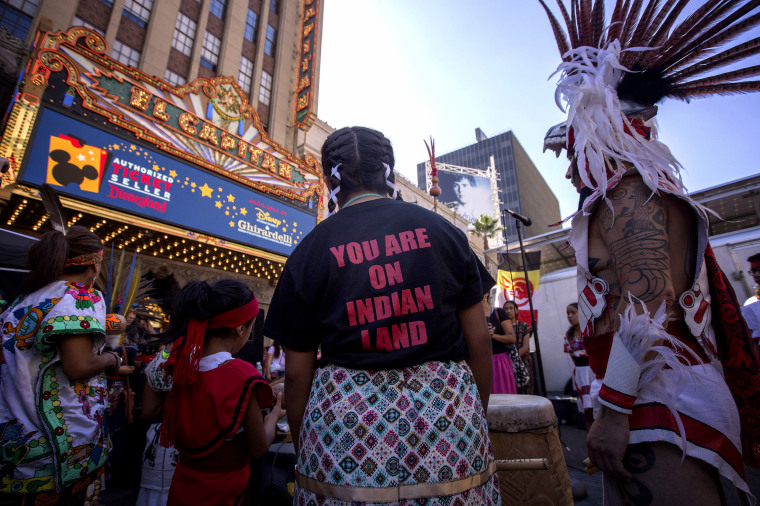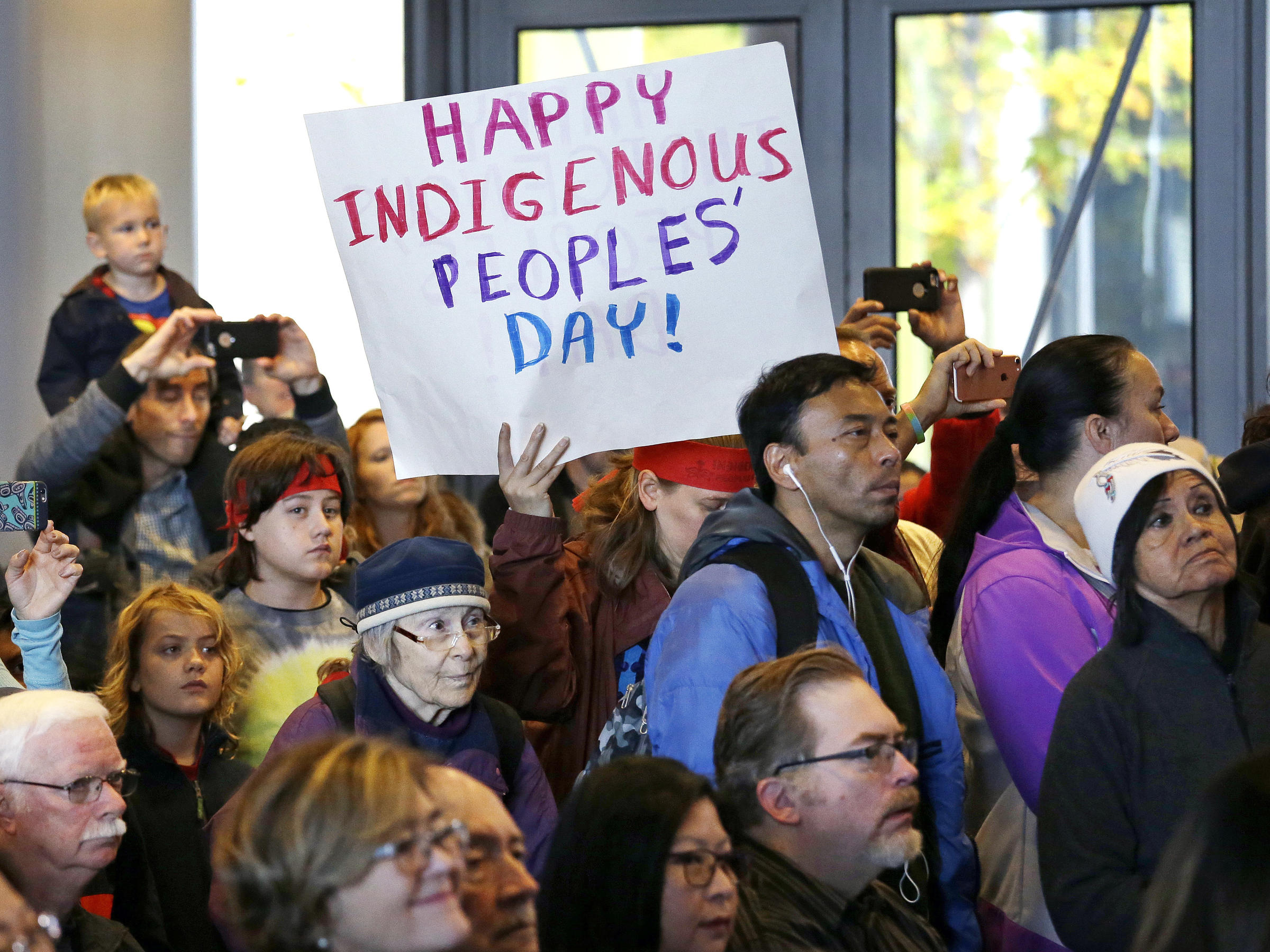
When Grand Forks, North Dakota, replaced Columbus Day with Indigenous Peoples’ Day in July, Courtney Davis Souvannasacd brought her son, Benjamin, with her to the city council chambers to watch the vote.
“It’s not something you typically bring a 12 year-old kid to," Souvannasacd, an enrolled member of the Turtle Mountain Band of Chippewa Indians, told NBC News. “It’s kind of dry.”
The council voted in favor of the resolution unanimously, and the Grand Forks Herald said the switch happened “almost anticlimactically.” But for Souvannasacd, who was one of the many Native people in the city advocating for the change, it was an emotional day.

Benjamin had been born on Columbus Day 12 years earlier. Replacing Columbus Day with Indigenous Peoples’ Day, she said, felt like the start of a long overdue recognition of the indigenous people who lived in the U.S. for thousands of years before Europeans like Columbus sailed across the Atlantic.
“My son was so elated,” Souvannasacd said. “I will never forget the feeling.”
Around the country, cities and states have slowly been moving to declare the second Monday of October as Indigenous Peoples’ Day, meant to honor the people indigenous to the land that is now North America. And advocates for Indigenous Peoples' Day want to make clear that Christopher Columbus wasn’t just an “explorer” — he was the beginning of an era of decimation.
“Celebrating Columbus Day continues a dangerous narrative that erases Native American voices and minimizes the federal government’s attempt at genocide and forced assimilation,” Congresswoman Deb Haaland, D-N.M., one of the first two Native American women elected to Congress last fall, said in a statement to NBC News.

Haaland’s home state of New Mexico will be celebrating its inaugural statewide Indigenous Peoples’ Day on Monday, as will Vermont, Maine, Louisiana, Michigan and Wisconsin. Columbus Day remains a federal holiday, but over 100 cities, towns and college campuses have made the switch.
“Indigenous Peoples’ Day is about acknowledging indigenous peoples’ complex history in this country and celebrating the culture, heritage, and strength of native communities everywhere,” Haaland said.
Rich Holschuh, one of many people in Vermont who fought to get the day formally recognized, agrees. For Holschuh, who is of mixed Native ancestry, and the other Vermont organizers, formally recognizing Indigenous Peoples’ Day is one of many ways to grapple with the country’s past and present treatment of Native people.
“Civic holidays are occasions for a society to come together, to recognize and observe our common values,” Holschuh said. “Columbus is not to be celebrated.”
Vermont only recognized the Abenaki people as the primary indigenous group of the state about a decade ago, Holschuh said, adding, “The conventional narrative here is that there have been no indigenous people.” The day, then, works to fight back against that dominant narrative, educating the public and working to tell a more accurate history of the state.


